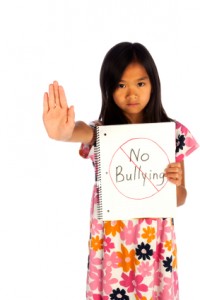If doing the right thing were easy it would be called A Day at the Beach. Instead it’s call social courage and it’s often missing in action when we need it. Why is that? Because we’re as wired for peer approval as we are for empathy. If your gut says you ought to stand up for the underdog or for tolerance but your peeps aren’t into that stuff, you’re going to feel stuck. You might wonder: “Do I shut up and play it safe? (Those who don’t try, never look foolish.) Or should I speak up and risk ridicule (or worse)?”
If you’ve ever had someone regale you with offensive jokes, maybe you’ve experienced this dilemma. I have. And while the guy across the table blithely displayed his racism, sexism and homophobia, I mentally screamed my righteous indignation. But did I say anything to Mr. I. M. A. Jerk? Nope. Chickened out. Kept my mouth shut. And felt deeply ashamed of myself for weeks.
Like I said, sometimes it’s hard for adults to do the right thing. Imagine how much harder it can be for kids.
Like this 6th grader:
Hey Terra, When I’m with my friends I don’t behave. And even though I don’t want to act cool and kinda mean, I have no other choice! I don’t wanna be with them any more. But if I leave to be with nicer girls, they’ll call me names like “You’re a user.” HELP! —Maggie
Dear Maggie,
I can tell you are a good-hearted person because you are bothered by the way your friends are acting. You don’t feel right being mean. Your self-awareness is your friend. It’s your Inner Voice. Listen closely and it can guide you in the direction of being a good person.
I understand it’s scary to leave one group and go to another. Especially if you’re worried that your old friends may turn their meanness on you! That might happen. And it might not. But what are your choices? If you stay with these girls and continue to doing things to hurt other people you’ll add to the bullying and meanness in your school. Your school already has plenty of that social garbage and doesn’t need any more. Also, if you stick with these friends you will lose respect for yourself. You don’t ever want to lose that.
On the other hand, if you leave this group to be with “nicer” girls, you will add to what is good about your school. You’ll feel happier and more relaxed. You’ll feel proud of yourself.
The choice is yours. Good luck!
In friendship,
Terra
See Day 21 of the Kindness and Respect Challenge













